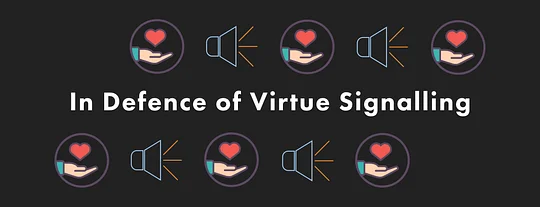In defence of virtue signalling

Whether it’s due to the pandemic or not, we've seen a much greater focus on ethical products and services in the fintech market this year.
It’s fair to say that challenger banks have always enjoyed trying to distinguish themselves from their more traditional counterparts. From avoiding hidden credit card fees to preventing criminals from laundering billions of dollars, they’re generally a more socially conscientious species, meaning they appeal to a more discerning audience.
But recently, they’ve taken it one step further.
Rather than simply staying out of trouble, they’re actively encouraging positive behaviour.
This growing trend has presented some unique opportunities for gamification, especially with regard to the recent surge of environmentally-focused products.
Fintech gets the green light 💚
Take Bunq’s SuperGreen account, where for every €100 a person spends, a tree is planted. Trees are then tallied on the homescreen and the user can delight in watching their little digital forest grow.
It’s a well-delivered product that’s enjoyed huge success. In fact, it was so popular that the business even ran out of its metal cards. While the account is available in 30 European countries, the initiative has become synonymous with the forward-thinking Dutch bank.
Then there’s CoGo, the New Zealand-based app that lets users monitor their carbon footprint based on their spending behaviour. They can also see which categories and merchants are causing the most damage, with context provided for the equivalent number of trees cut down and miles driven.
The user’s monthly carbon output is compared with the country average and a so-called “sustainable lifestyle”, which means they have clear targets to aim for. Okay, it’s no Mario Kart – it’s a couple of horizontal lines on a graph – but it’s a nice excuse for a little healthy self-competition.
And with NatWest recently partnering with CoGo, it seems like the incumbent banks are starting to catch on to the growing appetite for sustainable living and responsible consumption.
Doconomy – a Swedish brand that offers a line of green credit cards - tracks carbon emission in a similar way and offers a card that stops working after a carbon limit is reached.
Despite the likely inaccuracies in the way carbon is tracked, the fact that it can be calculated provides a great opportunity for gamification, because it allows users to compete with themselves. It’s a modest form of gamification, yes, but it makes saving the planet easier to visualise and more enjoyable. Plus, it feels more attainable for us as individuals. Staring at a digitally rendered clump of trees or a simple carbon count must surely stir a warming sense of self-admiration.
It seems like the incumbent banks are starting to catch on to the growing appetite for sustainable living.
Green investment platform Tickr recently unveiled its compelling carbon offset subscription product. By investing in renewable energy sources, rainforest protection programmes and rural sustainability projects, users can feel good about offsetting their emissions.
There are three tiers to aim for:
- #carbonneutral (you’ve offset the average UK citizen’s emissions)
- #climatepositive (twice the average)
- #climatehero (four times the average)
Just imagine the arguments you could win off the back of the #climatehero title.
Tickr is wise to incorporate hashtags here, as it encourages a bit of harmless virtue signalling – something that, if done in the right way, could fast-track this positive behaviour into a more mainstream activity.
Tickr is wise to incorporate hashtags here, as it encourages a bit of harmless virtue signalling.
I’m sure those Bunq SuperGreen users don’t mind being quizzed on how they got that premium metal card that comes alongside the account. Nor should they. Please - keep tapping it on the bartop.
Verse, the Spanish payments platform, lets users share their transaction notifications with friends and even the public. It’s a bold move and one that might be a cause for concern for users who aren’t comfortable sharing such personal information. But if this sort of thing caught on in a major way, we’d surely start seeing more charitable donations and ethical merchants being prioritised.
The bottom line ⬇️
Ultimately, does it really matter if people end up doing the right thing for the wrong reasons? As long as the disingenuous expression of moral values is grounded in something positive and real (which is very easy to validate in a financial service or product) then the more of this behaviour the better, I say. There are far more worrying events going on in the world than posturing about this sort of thing.
Humans have always been a vain species and, from where I’m sitting, we’re only getting worse. Instead of trying to fix this inherent human flaw, why not take advantage of it and cater our financial products, features and designs to virtue signallers? Who knows – it might even lay the foundations for more long-term genuinely green lifestyles.
It could make the world a better place (albeit a little more irritating).
Don't forget, you can find all of the content and designs mentioned in this article in 11:FS Pulse.



